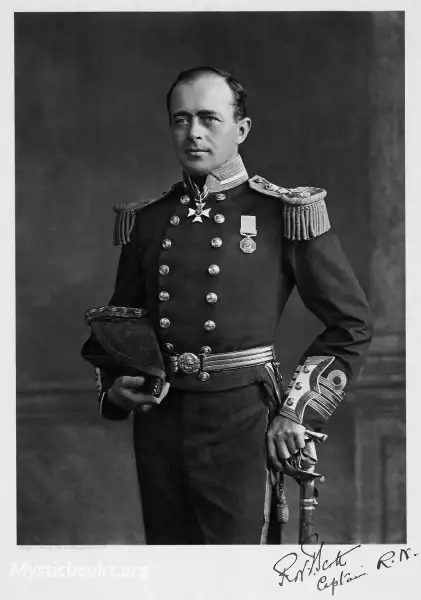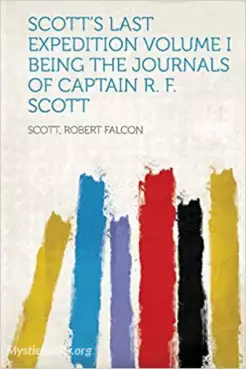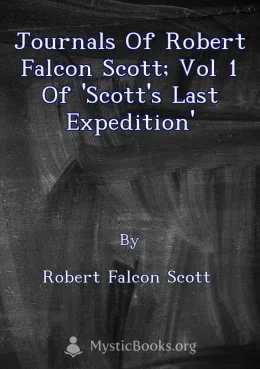
Timeline
Title
Country/Nationality
Robert Falcon Scott
Captain Robert Falcon Scott was a Royal Navy officer and explorer who led two expeditions to the Antarctic regions: the Discovery expedition of 1901–1904 and the ill-fated Terra Nova expedition of 1910–1913. On the first expedition, he set a new southern record by marching to latitude 82°S and discovered the Antarctic Plateau, on which the South Pole is located. On the second venture, Scott led a party of five which reached the South Pole on 17 January 1912, less than five weeks after Amundsen's South Pole expedition.
A planned meeting with supporting dog teams from the base camp failed, despite Scott's written instructions, and at a distance of 162 miles (261 km) from their base camp at Hut Point and approximately 12.5 miles (20 km) from the next depot, Scott and his companions died. When Scott and his party's bodies were discovered, they had in their possession the first Antarctic fossils ever discovered. The fossils were determined to be from the Glossopteris tree and proved that Antarctica was once forested and joined to other continents.
Scott was born on 6 June 1868, the third of six children and elder son of John Edward, a brewer and magistrate, and Hannah Scott of Stoke Damerel, near Devonport. There were also naval and military traditions in the family, Scott's grandfather and four uncles all having served in the army or navy. John Scott's prosperity came from the ownership of a small Plymouth brewery which he had inherited from his father and subsequently sold. Scott's early childhood years were spent in comfort, but some years later, when he was establishing his naval career, the family suffered serious financial misfortune.
In accordance with the family's tradition, Scott and his younger brother Archie were predestined for careers in the armed services. Scott spent four years at a local day school before being sent to Stubbington House School in Hampshire, a cramming establishment that prepared candidates for the entrance examinations to the naval training ship HMS Britannia at Dartmouth. Having passed these exams Scott began his naval career in 1881, as a 13-year-old cadet.
In July 1883, Scott passed out of Britannia as a midshipman, seventh overall in a class of 26. By October, he was en route to South Africa to join HMS Boadicea, the flagship of the Cape squadron, the first of several ships on which he served during his midshipman years. While stationed in St Kitts, West Indies, on HMS Rover, he had his first encounter with Clements Markham, then Secretary of the Royal Geographical Society, who would loom large in Scott's later career. On this occasion, 1 March 1887, Markham observed Midshipman Scott's cutter winning that morning's race across the bay. Markham's habit was to "collect" likely young naval officers with a view to their undertaking polar exploration work in the future. He was impressed by Scott's intelligence, enthusiasm and charm, and the 18-year-old midshipman was duly noted.
In March 1888 Scott passed his examinations for sub-lieutenant, with four first class certificates out of five. His career progressed smoothly, with service on various ships and promotion to lieutenant in 1889. In 1891, after a long spell in foreign waters, he applied for the two-year torpedo training course on HMS Vernon, an important career step. He graduated with first class certificates in both the theory and practical examinations. A small blot occurred in the summer of 1893 when, while commanding a torpedo boat, Scott ran it aground, a mishap which earned him a mild rebuke.
Books by Robert Falcon Scott

The Journals of Robert Falcon Scott, Volume 1
When Scott made his expedition the study of Radiology was new breaking open physics. Meteorology was much less well known and understood. Continental drift was mostly unheard of. They did not even know the cause and treatment for Scurvy.

Journals of Robert Falcon Scott; Vol 1 of 'Scott's Last Expedition'
Robert Falcon Scott's 'Journals' provide a raw and intimate account of his fateful expedition to the South Pole. The book, a primary source document, offers a detailed look at the challenges of polar exploration, the camaraderie of the expedition te...

Journals of Robert Falcon Scott; Volume 1 of 'Scott's Last Expedition'
This volume presents the journals of Captain Robert Falcon Scott, chronicling his ill-fated expedition to the South Pole in 1911. The diary entries offer a firsthand account of the challenges and triumphs of the journey, including scientific research...